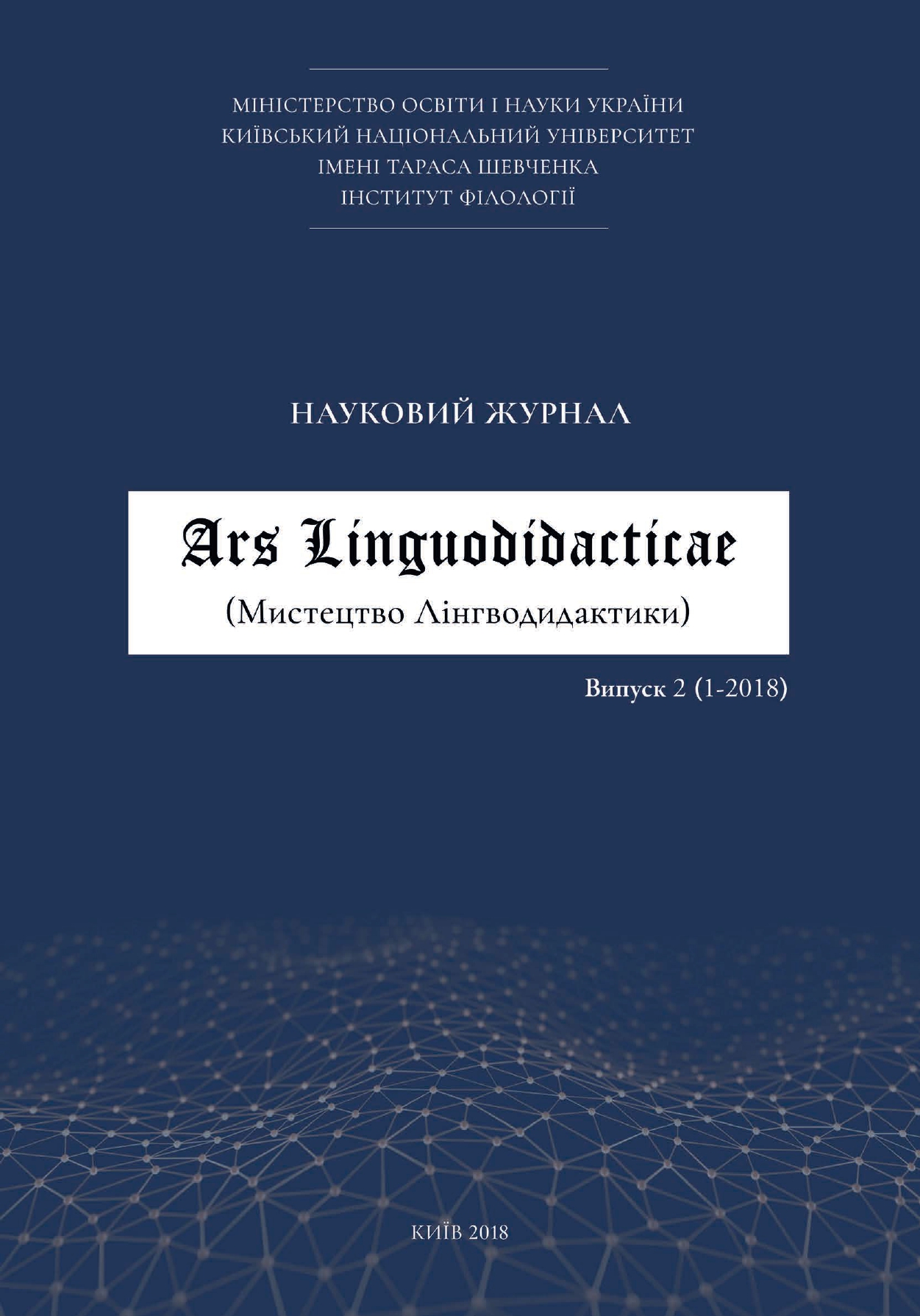ПОЛІЛІНГВАЛЬНА ОСВІТА У НЕЛІНГВІСТИЧНИХ ВИЩИХ НАВЧАЛЬНИХ ЗАКЛАДАХ
DOI:
https://doi.org/10.17721/2663-0303.2018.2.03Ключові слова:
полілінгвізм, полілінгвальна освіта, полілінгвістична компетентність, білінгвізм, диверсифікаціяАнотація
Мета статті – обґрунтувати доцільність полілінгвальної підготовки у вищих нелінгвістичних закладах та окреслити шляхи її реалізації. Представлено визначення понять «білінгвізм», «мультилінгвізм» та «полілінгвізм». Окреслено преференції, що їх дає запровадження полілінгвальної освіти у навчальний процес вищої школи. Проаналізовано досвід зарубіжних науковців в галузі полілінгвальної освіти. Вказано на відсутність серйозної теоретико-методологічної бази для реалізації такої освіти в нелінгвістичних ВНЗ України.
Посилання
Baryshnikov N.V. (2008). Didactics of multilingualism. In: Foreign languages at school. No.2. Print.
Khomenko O.V. (2014). Inshomovna pidhotovka studentiv ekonomichnykh spezialnostey v konteksti hlobalizatsiyi: monohrafiya (Іншомовна підготовка студентів економічних спеціальностей у контексті глобалізації: монографія). Print.
Khomenko O.V. (2015). Tendenziyi inshomovnoyi pidhotovky studentiv ekonomichnykh spezialnostey v konteksti hlobalizatsiyi: teoretycnyi i metodolohichnyi aspect: rukopys (Тенденції іншомовної підготовка студентів економічних спеціальностей у контексті глобалізації: теоретичний і методологічний аспект). Manuscript.
Schweitzer A.D., Nikolsky LB. (1978). Vvedenie v sociolingvistiku: uchebnoye posobiye (Introduction to Sociolinguistics: training manual. Moscow: Vysshaya shkola. (Швейцер А.Д., Никольский Л.В. Введение в социолингвистику: учебное пособие. – М.: Высшая школа). Print.
Schulte A. (2001). Multikulturelle Gesellschaft: Zu Inhalt und Funktion eines vieldeutigen Begriffs. Einleitende Bemerkungen. URL: http://library.fes.de/fulltext/asfo/01009003.htm
Prohrama anhliyskoyi movy dlya profesiynoho spilkuvannya (2005). (Програма англійської мови для професійного спілкування. – Kyiv: Lenvit). Print.
##submission.downloads##
Опубліковано
Як цитувати
Номер
Розділ
Ліцензія
Авторське право (c) 2018 Олександр Хоменко

Ця робота ліцензується відповідно до Creative Commons Attribution-ShareAlike 4.0 International License.
Ця робота ліцензується відповідно до Creative Commons Attribution-NonCommercial 4.0 International License.
Політика охорони авторських прав відповідно до умов ліцензії: Creative Commons Attribution-NonCommercial (Атрибуція-Некомерційне використання) 4.0 Міжнародна (CC BY-NC 4.0).
Автори, що публікують свої статті в журналі "Ars Linguodidacticae" (журналі відкритого доступу) зберігають за собою такі права:
- Автори зберігають за собою права на авторство своєї статті та надають журналу "Ars Linguodidacticae" право першої публікації рукопису своєї статті на умовах ліцензії Creative Commons (CC BY-NC 4.0) Attribution License, яка дозволяє іншим особам вільно розповсюджувати опубліковану роботу з обов'язковим посиланням на автора оригінальної роботи та першу оригінальну публікацію в журналі "Ars Linguodidacticae". Інформація про збереження права на авторство надається на титульній сторінці статті.
- Автори зберігають за собою право укладати окремі угоди на неексклюзивне розповсюдження своєї статті у тому вигляді, в якому вона була опублікована в журналі "Ars Linguodidacticae" (наприклад, розміщувати статтю в електронних бібліотеках, архівах та каталогах або публікувати у складі інститутських збірників та монографій), за умови обов'язкового повного посилання на першу оригінальну публікацію в журналі "Ars Linguodidacticae".
- Політика журналу "Ars Linguodidacticae" дає змогу та заохочує розміщення авторами в мережі Інтернет (наприклад в інститутському репозитарії або на персональному сайті) рукопису роботи як до її подання до редакції, так і під час її редакційного опрацювання, оскільки це сприяє продуктивній науковій дискусії та позитивно позначається на оперативності й динаміці цитування статті.
Редакція журналу зберігає за собою видавничі права на:
- зверстані оригінали статей та весь номер журналу;
- оформлення журналу, а також оригінальні ілюстративні та додаткові матеріали;
- репринтні перевидання журналу в друкованому та електронному вигляді.
Політика охорони авторських прав провадиться відповідно до умов ліцензії: Creative Commons Attribution-NonCommercial (Атрибуція-Некомерційне використання) 4.0 Міжнародна (CC BY-NC 4.0).
Для отримання додаткової інформації, будь ласка, прочитайте повний текст Публічної ліцензії CC BY-NC 4.0
Creative Commons Attribution-NonCommercial 4.0 International License.


